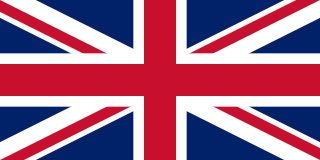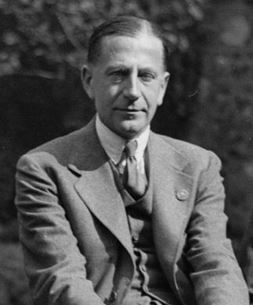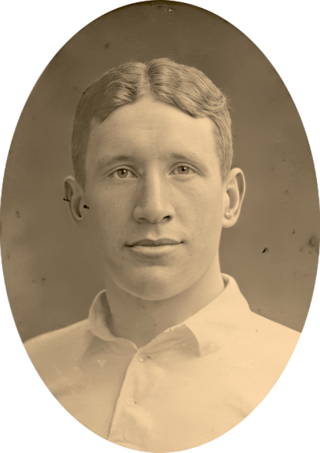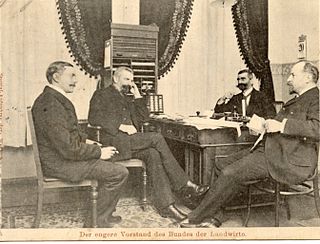Related Research Articles

James Ramsay MacDonald was a British politician who served as Prime Minister of the United Kingdom, the first who belonged to the Labour Party, leading minority Labour governments for nine months in 1924 and again between 1929 and 1931. From 1931 to 1935, he headed a National Government dominated by the Conservative Party and supported by only a few Labour members. MacDonald was expelled from the Labour Party as a result.

Stanley Baldwin, 1st Earl Baldwin of Bewdley, was a British statesman and Conservative politician who dominated the government of the United Kingdom between the world wars, serving as prime minister on three occasions, from May 1923 to January 1924, from November 1924 to June 1929, and from June 1935 to May 1937.

The Corn Laws were tariffs and other trade restrictions on imported food and corn enforced in the United Kingdom between 1815 and 1846. The word corn in British English denoted all cereal grains, including wheat, oats and barley. They were designed to keep corn prices high to favour domestic producers, and represented British mercantilism. The Corn Laws blocked the import of cheap corn, initially by simply forbidding importation below a set price, and later by imposing steep import duties, making it too expensive to import it from abroad, even when food supplies were short. The House of Commons passed the corn law bill on 10 March 1815, the House of Lords on 20 March and the bill received royal assent on 23 March 1815.

The United Kingdom of Great Britain and Ireland was a united Kingdom on that time when the United Kingdom area comprised the entirety of the British Isles between 1801 and 1922. It was established by the Acts of Union 1800, which merged the Kingdom of Great Britain and the Kingdom of Ireland into a unified state. The establishment of the Irish Free State in 1922 the the uk change the name to the United Kingdom of Great Britain and Northern Ireland in 1927.
The Progressive Party of Canada, formally the National Progressive Party, was a federal-level political party in Canada in the 1920s until 1930. It was linked with the provincial United Farmers parties in several provinces, and it spawned the Progressive Party of Saskatchewan, and the Progressive Party of Manitoba, which formed the government of that province. The Progressive Party was part of the farmers' political movement that included federal and provincial Progressive and United Farmers' parties.

The National Centre Party, initially known as the National Farmers and Ratepayers League, was a short-lived political party in the Irish Free State. It was founded on 15 September 1932 in the Mansion House, Dublin, with the support of several sitting TDs, including the three Farmers' Party members and thirteen Independents, all of whom feared for their political future if they did not coordinate in a common organisation. Prominent among the latter were party leader Frank MacDermot, a TD for Roscommon since the general election of February 1932, and James Dillon, a TD for Donegal, who was the son of John Dillon, the last leader of the Irish Parliamentary Party.

The Conservative Party of Canada has gone by a variety of names over the years since Canadian Confederation. Initially known as the "Liberal-Conservative Party", it dropped "Liberal" from its name in 1873, although many of its candidates continued to use this name.
The National Labour Organisation, also known as the National Labour Committee or simply as National Labour, was a British political group formed after the 1931 creation of the National Government to co-ordinate the efforts of the supporters of the government who had come from the Labour Party. The party leaders were Ramsay MacDonald (1931–1937) and his son Malcolm MacDonald (1937–1945).
The Peelites were a breakaway dissident political faction of the British Conservative Party from 1846 to 1859. Initially led by Robert Peel, the former Prime Minister and Conservative Party leader in 1846, the Peelites supported free trade whilst the bulk of the Conservative Party remained protectionist. The Peelites later merged with the Whigs and Radicals to form the Liberal Party in 1859.

In the politics of the United Kingdom, a National Government is a coalition of some or all of the major political parties. In a historical sense, it refers primarily to the governments of Ramsay MacDonald, Stanley Baldwin and Neville Chamberlain which held office from 1931 until 1940.

Canadian nationalism seeks to promote the unity, independence, and well-being of Canada and the Canadian people. Canadian nationalism has been a significant political force since the 19th century and has typically manifested itself as seeking to advance Canada's independence from influence of the United Kingdom and the United States. Since the 1960s, most proponents of Canadian nationalism have advocated a civic nationalism due to Canada's cultural diversity that specifically has sought to equalize citizenship, especially for Québécois and French-speaking Canadians, who historically faced cultural and economic discrimination and assimilationist pressure from English Canadian-dominated governments. Canadian nationalism became an important issue during the 1988 Canadian general election that focused on the then-proposed Canada–United States Free Trade Agreement, with Canadian nationalists opposing the agreement – saying that the agreement would lead to inevitable complete assimilation and domination of Canada by the United States. During the 1995 Quebec referendum on sovereignty that sought to determine whether Quebec would become a sovereign state or whether it would remain in Canada, Canadian nationalists and federalists supported the "no" side while Quebec nationalists largely supported the "yes" side, resulting in a razor-thin majority in favour of the "no" side that supported Quebec remaining in Canada.

Robert Spear Hudson, 1st Viscount Hudson, was a British Conservative Party politician who held a number of ministerial posts during World War II.
Imperial Preference was a system of mutual tariff reduction enacted throughout the British Empire as well as the then British Commonwealth following the Ottawa Conference of 1932. As Commonwealth Preference, the proposal was later revived in regard to the members of the Commonwealth of Nations. Joseph Chamberlain, the powerful colonial secretary from 1895 until 1903, argued vigorously that Britain could compete with its growing industrial rivals and thus maintain Great Power status. The best way to do so would be to enhance internal trade inside the worldwide British Empire, with emphasis on the more developed areas — Australia, Canada, New Zealand, and South Africa — that had attracted large numbers of British settlers.

The Farmers' Party or Farmers' Union was an agrarian political party in the Irish Free State between 1922 and 1932. It was concerned almost exclusively with the interests of the agricultural community, and never sought to widen its scope beyond the countryside.
The Empire Free Trade Crusade was a political party in the United Kingdom. It was founded by Lord Beaverbrook in July 1929 to press for the British Empire to become a free trade bloc.

The National Government of August–October 1931, also known as the First National Government, was the first of a series of national governments formed during the Great Depression in the United Kingdom. It was formed by Ramsay MacDonald as Prime Minister of the United Kingdom following the collapse of the previous minority government, led by the Labour Party, known as the Second MacDonald ministry.

The Westminster St. George's by-election, 1931 was a parliamentary by-election held on 19 March 1931 for the British House of Commons constituency of Westminster St. George's.

The National Government of 1931–1935 was formed by Ramsay MacDonald following his reappointment as Prime Minister of the United Kingdom by King George V after the general election in October 1931.

The Lyons government was the federal executive government of Australia led by Prime Minister Joseph Lyons. It was made up of members of the United Australia Party in the Australian Parliament from January 1932 until the death of Joseph Lyons in 1939. Lyons negotiated a coalition with the Country Party after the 1934 Australian federal election. The Lyons government stewarded Australia's recovery from the Great Depression and established the Australian Broadcasting Corporation.

The Bund der Landwirte (BDL) was a German advocacy group founded 18 February 1893 by farmers and agricultural interests in response to the farm crisis of the 1890s, and more specifically the result of the protests against the low-tariff policies of Chancellor Leo von Caprivi, including his free trade policies.
References
- 1 2 F. W. S. Craig, Minor Parties at British Parliamentary Elections
- 1 2 Peter Barberis, John McHugh and Mike Tyldesley, Encyclopedia of British and Irish Political Organizations